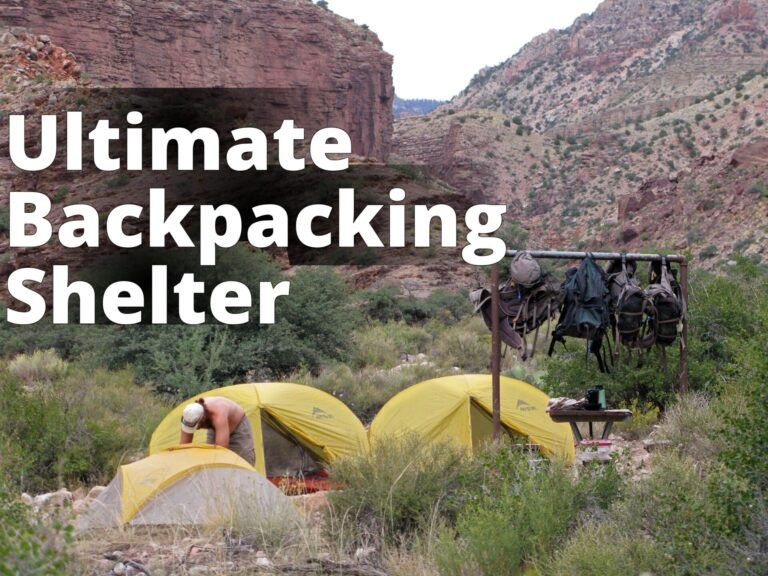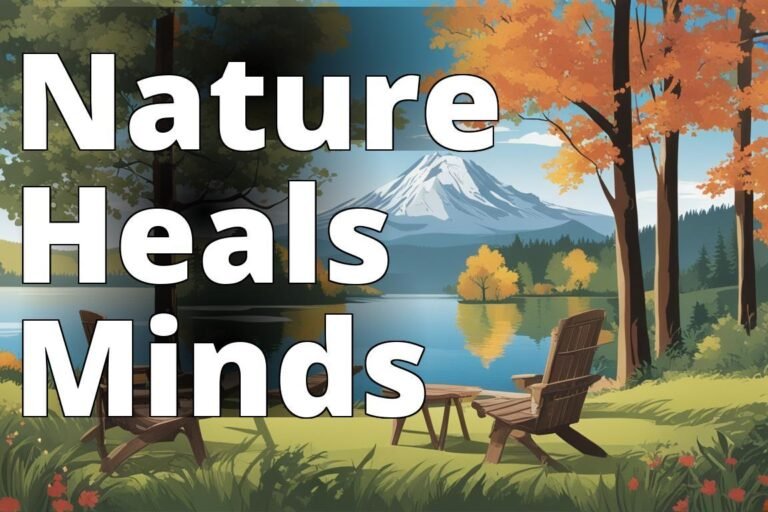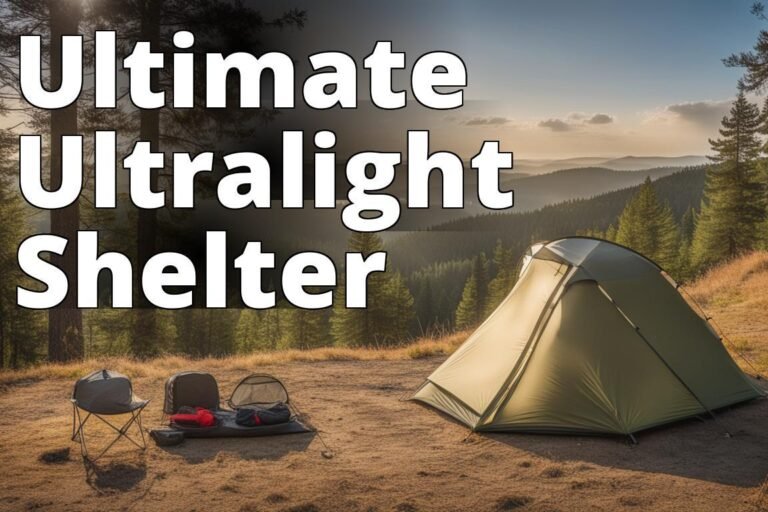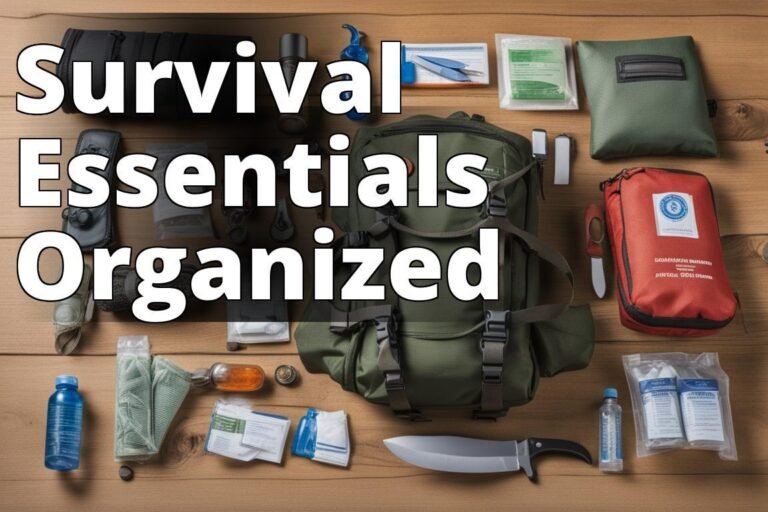The Importance of Self-Reliance in the Outdoors
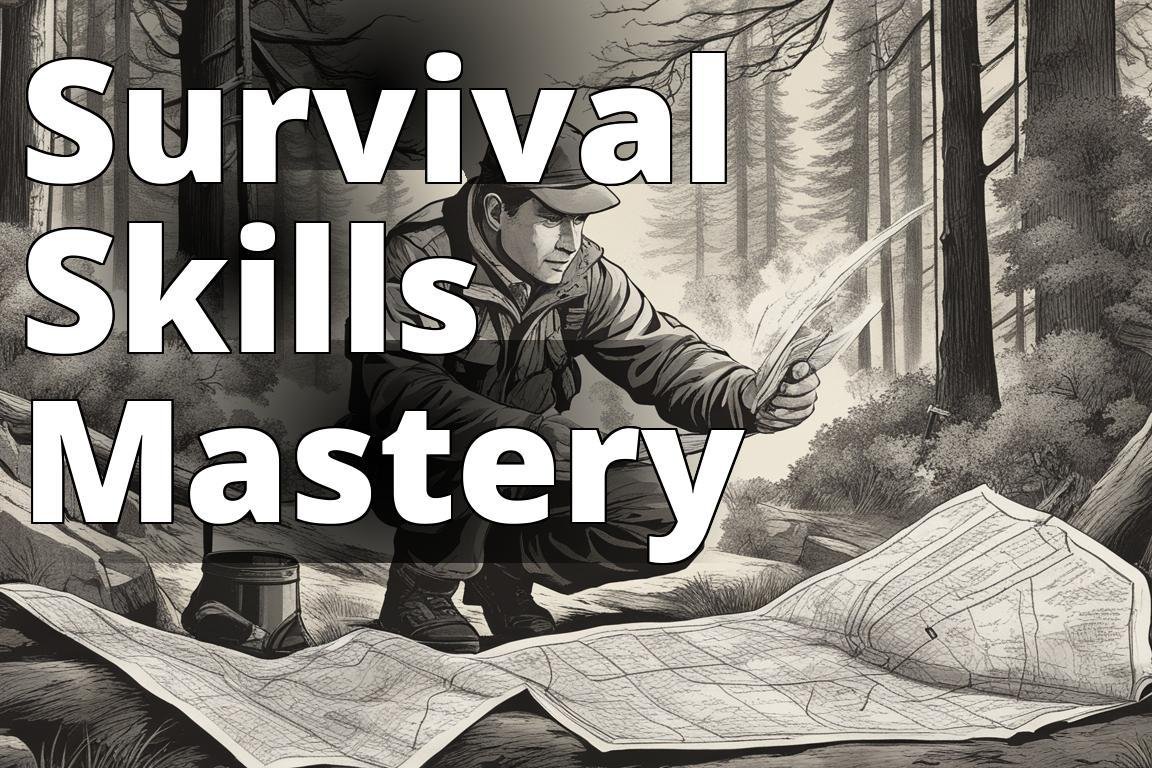
In an era where technology and convenience reign supreme, the art of self-reliance, especially in the unyielding and unpredictable theater of the great outdoors, has become a vital cornerstone for adventurers and nature enthusiasts alike. This necessity transcends the mere ability to endure; it’s about embracing the profound satisfaction that comes from knowing you can rely on your skills and wit to navigate through the wilderness. The journey towards outdoor self-reliance is not just about survivalit’s about mastering the delicate dance with nature, where every step, every breath, and every decision counts.
Importance of Self-Reliance in the Outdoors
By reading this article, you will learn:
– What self-reliance is and why it’s important in the outdoors
– How to become more self-reliant in the outdoors, including skills like map reading, fire starting, shelter building, water finding and purification, and signaling for help
– The significance of self-reliance for outdoor survival and preparedness
What is self-reliance?
Self-reliance in the outdoors is the embodiment of independenceit’s the accumulation of skills, knowledge, and attitudes that equip an individual to thrive in natural environments without external aid. This doesn’t mean shunning the idea of teamwork or companionship but rather ensuring that you are a pillar of strength, capable of contributing and even leading when situations turn south.
Why is self-reliance important in the outdoors?
The wilderness does not cater to the unprepared. Its beauty is matched by its ferocity, offering no quarter to those who step into its realm without respect and preparation. Self-reliance is your armor and sword in these lands. It’s about safety, yes, but also about the deep connection and respect you develop with nature. When you know how to listen to the whispers of the woods, interpret the language of the skies, and respond to the calls of the wild with confidence, you don’t just surviveyou thrive.
Insider Tip: “Preparation is the key to confidence in the wilderness. Knowing you have the skills to face whatever comes your way changes not just how you survive, but how you experience the outdoors.”
How to become more self-reliant in the outdoors
Transitioning from reliance on modern conveniences to becoming a self-sufficient entity in the wilderness is a journey that begins with the right mindset and is fortified by continuous learning and practice. Here are critical skills and knowledge areas to focus on:
1. Learn to read a map and use a compass
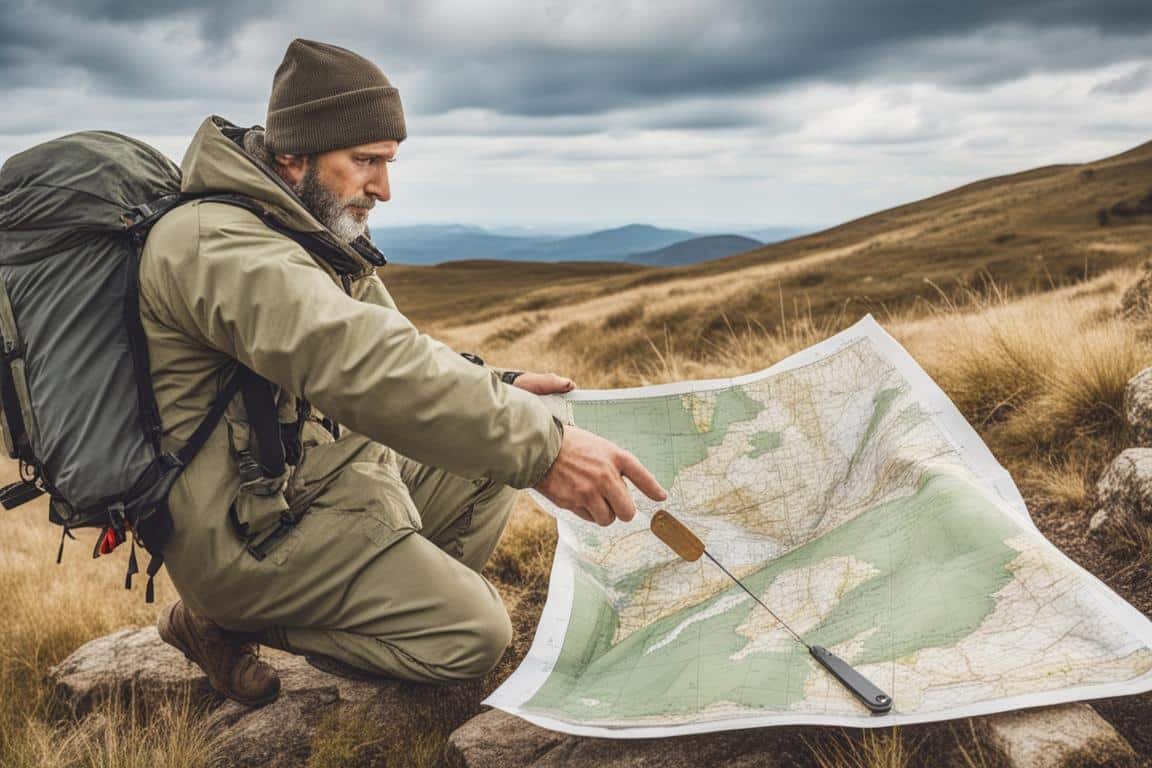
In an age where GPS devices are ubiquitous, the traditional skills of map reading and compass use are invaluable. Not only do they serve as a reliable backup, but they also enhance your spatial awareness and connection to the landscape.
- Step-by-step Guide:
1. Familiarize yourself with map symbols and scales.
2. Learn to orientate the map with your surroundings.
3. Practice using a compass to find directions.
4. Combine map and compass skills to navigate.
2. Learn to start a fire without matches or a lighter
Fire is the primordial tool of survival, offering warmth, light, and a means to cook food and purify water. Mastering the art of fire-starting without conventional means is a testament to your adaptability and resourcefulness.
- Step-by-step Guide:
1. Gather dry tinder, kindling, and fuel wood.
2. Construct a fire lay suitable for the conditions.
3. Use friction, a fire steel, or a magnifying glass to ignite the tinder.
4. Slowly build the fire by carefully adding kindling and then fuel wood.
3. Learn to build a shelter
Shelter is your refuge against the elements, a critical component of survival that protects you from extreme temperatures, wind, and precipitation.
- Step-by-step Guide:
1. Choose a location away from hazards.
2. Use natural materials or a tarp to create a structure.
3. Ensure the shelter is insulated and waterproof.
4. Make it small enough to retain body heat but large enough to lie down in comfortably.
4. Learn to find and purify water
Water is life. Knowing how to locate and purify water sources is perhaps the most crucial survival skill, as humans can survive only a few days without hydration.
- Step-by-step Guide:
1. Identify signs of water in the landscape.
2. Collect water using rain, streams, or condensation.
3. Purify by boiling, using chemical tablets, or a filtration system.
5. Learn to signal for help
Even the most experienced adventurers can find themselves in distress. Knowing how to signal for help can make the difference between being found and a dire outcome.
- Step-by-step Guide:
1. Use a whistle, mirror, or fire to create a signal.
2. Create visible markers or signs in open areas.
3. Understand and use universal distress signals.
Final thoughts
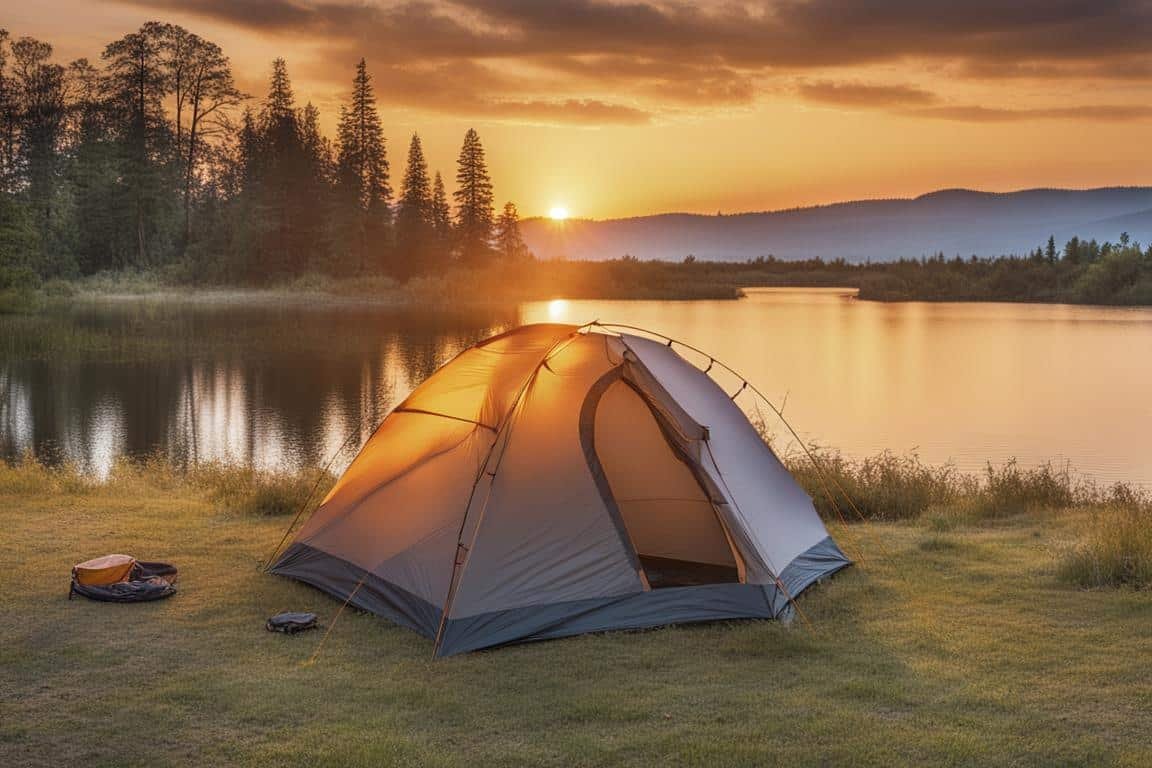
The path to self-reliance in the outdoors is perpetual, paved with challenges, learning, and growth. It’s a journey that hones not just your survival skills but also your character, teaching lessons of humility, perseverance, and respect for nature. As the stoic philosopher Seneca once said, “It is not because things are difficult that we do not dare; it is because we do not dare that they are difficult.” Embrace the challenge, for in doing so, you not only prepare yourself to face the wilderness, but you also discover the true extent of your capabilities and the unparalleled joy of connecting with the natural world on its terms.
For those looking to take their first step or further their journey in outdoor self-reliance, consider exploring survival gear to enhance your adventures. Remember, the best time to learn and prepare is always now, before you find yourself facing the unpredictability of the wilderness.
Related Reads on Backcountry Trax:
– /how-to-survive-lost-in-the-wilderness/
– /reasons-to-let-the-outdoors-be-your-classroom/
– /getting-outside-health-benefits/
– /survival-tricks/
– /best-trail-running-gear-checklist/
– /best-hiking-boots-2024/
– /best-hiking-shoes-2024/
– /marathon-training-plan/
– /physical-fitness-conditioning/
– /blog/
Self-reliance in the outdoors is more than a skill set; it’s a mindset that empowers you to face the wilderness with confidence, respect, and a sense of responsibility. It’s about being prepared, staying aware, and always learning. The wilderness is an unforgiving teacher, but the lessons it imparts are invaluable, teaching us not just how to survive, but how to live.
Questions and Answers
Why is self-reliance important in the outdoors?
Self-reliance is crucial in outdoor survival as it ensures you can take care of yourself in case of emergencies.
What are the benefits of being self-reliant in the outdoors?
Being self-reliant in the outdoors allows you to be prepared for unexpected situations and increases your chances of survival.
How can one become more self-reliant in outdoor survival?
You can become more self-reliant in outdoor survival by learning essential skills such as navigation, shelter-building, and foraging for food.
Who can benefit from being self-reliant in the outdoors?
Anyone who enjoys outdoor activities like hiking, camping, or backpacking can benefit from being self-reliant in the outdoors.
What if I prefer relying on others in outdoor situations?
While it’s good to have a support system, being self-reliant in the outdoors can provide a sense of confidence and independence in challenging situations.
How can I overcome my fear of being self-reliant in the outdoors?
Start by taking small steps, such as learning basic survival skills and gradually increasing your comfort level in outdoor settings.




